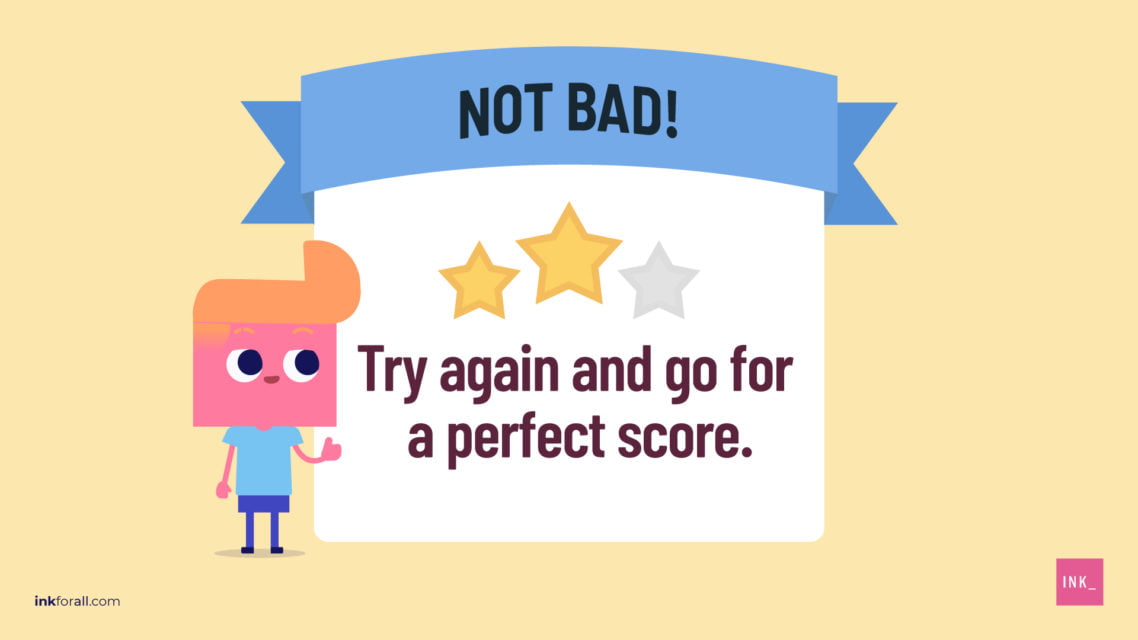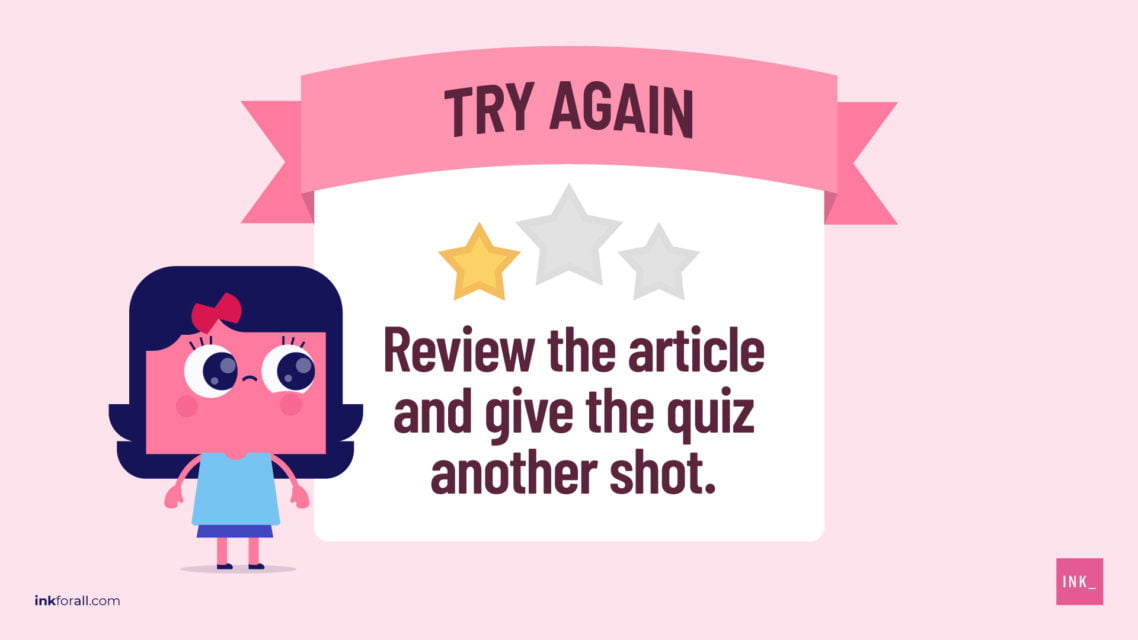Is it no-one or no one? Or, noone? In this guide, you’ll discover the difference between noone, no one, no-one, and nobody. Plus, you’ll see the best example sentences and explore synonyms you can use instead of these indefinite pronouns.
Main Noone or No One Takeaways:
- The correct way to spell no one is with two words.
- Noone is a common misspelling of no one. It’s never correct.
- No-one with a hyphen is a variant of no one. It’s technically correct in some contexts, but it isn’t commonly used. No one is always correct.
- Nobody is a more informal version of no one.
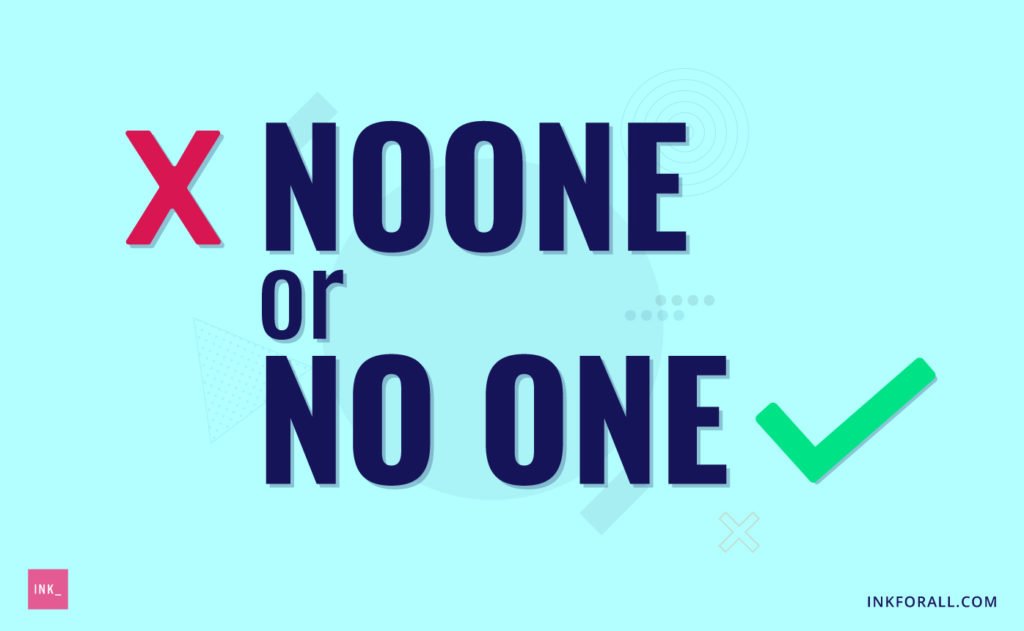

Which is Correct: No One or Noone?
The correct spelling is no one (two words). Noone is a common misspelling of no one. While no-one with a hyphen might be an acceptable variant in some situations, no one as two separate words is always correct. For this reason, we recommend always spelling no one as two words without the hyphen.
Is it No-one or No one?
You may see no one expressed with a hyphen as no-one. Notwithstanding, this variant isn’t common in modern English. Still, it does make rare appearances. However, it should not be used when writing out the phrase no one person. Instead, to ensure you always spell no one correctly, use two separate words. This is the optimal spelling. In this way, “noone” is never an acceptable spelling of no one.
What is Noone?
Noone (one word) is a misspelling of the indefinite pronoun no one (two words). Instead, no one spelled with two words and without a hyphen is always correct. Just like its less formal synonym nobody, the word no one means “no person” (No one/Nobody is home).
Why Do People Write “Noone” Instead of “No One”?
There are two main reasons why some people spell “no one“ as “noone.” First, and the most obvious reason, is that they simply don’t know that “noone“ is an incorrect spelling. Second, words with two consecutive ‘Os‘ or ‘oo‘ are commonly known to have single phonemes. Take for instance the following words:
- neighborhood
- book
- foot
- hood
- food
Always keep in mind, “noone“ is not a word. Don’t get confused because its antonym “anyone” is spelled as one word. Or because “nobody,”“nowhere,” and “nothing” are also spelled as single terms. The correct indefinite pronoun is “no one.”
Is No one the Same as None?
While there is some overlap, the indefinite pronoun no one is not exactly the same as none. On one hand, no one refers to people only (No one responded to the question). On the other hand, none can refer to people and inanimate objects.
- No one expresses the absence of people.
- It means no person or not anyone.
- This pronoun is commonly misspelled as noone.
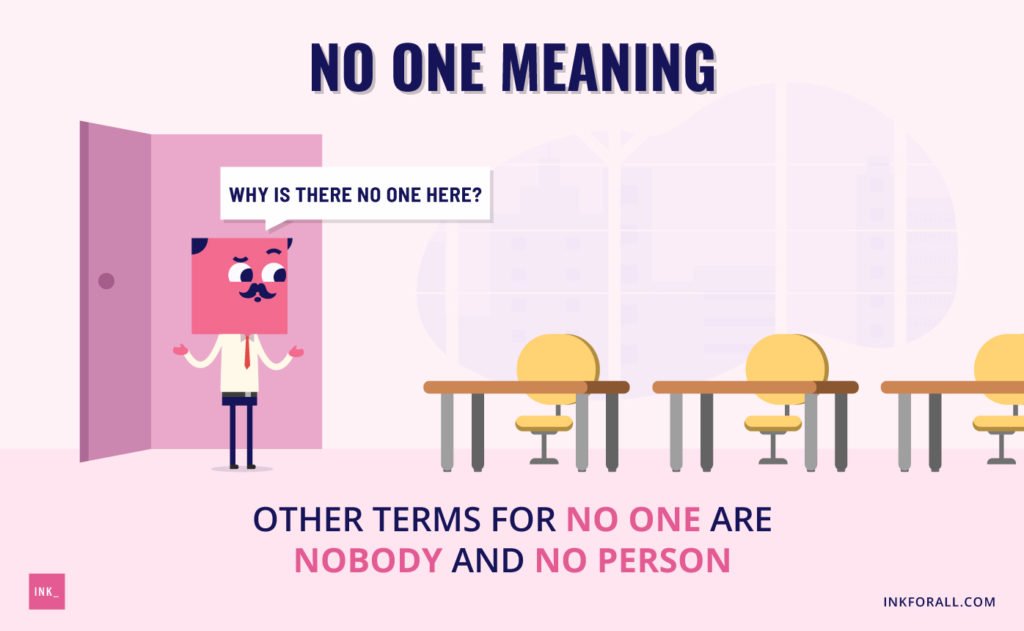

How do you use no one in a Sentence?
Here are examples of how to use no one in a sentence:
Can you Start a Sentence with No one?
Yes, you can start a sentence with no one. In fact, no one is an indefinite pronoun that means no person. Since you can begin a sentence with other indefinite pronouns and pronouns in general, you can use no one and nobody in the same way. Always spell no one as two words. What’s more, if you start a sentence with a negative word like no one, be sure the rest of the sentence doesn’t include another negative. This is because double negativesare grammatically incorrect in English.
What do we use With no one: Has or Have?
Since no one is singular, we use the singular verb “has” with this indefinite pronoun, and never the plural “have.” Therefore, make sure your sentence reflects correct subject-verb agreement by always using has with no one.
What is Another Word for no one?
Here is a list of synonyms for no one:
- Nobody
- Not one person
- No person
- Not anybody
- No individual
- Not anyone
- Not a soul
For example, nobody is considered less formal than no one. As a result, it may be more appropriate for informal or casual conversations.
It’s extremely important to note that there are several synonyms and substitutable phrases for no one and nobody, but nuances in meaning should be considered when using them.
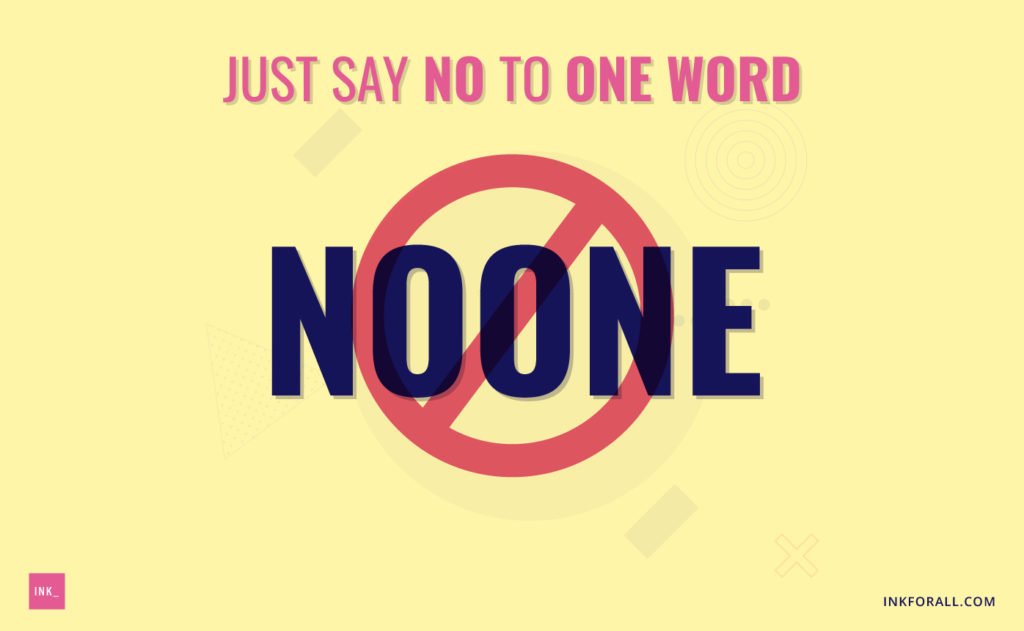

Taken a certain way, the phrase not anyone in the above example implies the possibility that someone special could potentially steer Liam away from trouble. For additional emphasis, you might write it as not just anyone.
However, the above phrasing suggests that Liam is unfortunately bound for trouble no matter what.
Nobody and no one are negative pronouns we use to form negative clauses. Never combine these with other negatives to form a double negative.
What is the Opposite of no One?
The literal opposite of no one is every one, which means every person. Here are several other antonyms for no one and nobody:
- Everyone
- Everybody
- All people
- Each and every one
- Every person
- One and all
Notice that every one and everyone are both included as antonyms for no one. It’s important to note that these words have distinct meanings and are not interchangeable.
- Every one (two words) refers to each single member of a group.
- Everyone (one word) refers to the collective members of a group.
Is it No One or Nobody?
The answer to this question isn’t cut and dry. Both nobody and no one are indefinite pronouns that mean not any person. Although both are technically correct, no one tends to be more common in formal writing, including professional and academic work.
How do you use Nobody and No One?
Nobody and no one both mean “not any person.” Additionally, they are indefinite pronouns. Although they mean and may be used interchangeably, no one is the preferred choice for formal, academic, and professional writing applications. Conversely, nobody is more common in formal situations. What’s more, nobody is usually more common in British English than in American English.
- Where to use No one: formal contexts like academic and professional writing
- Where to use Nobody: informal contexts like casual conversations or messages
How to use no one and Nobody in a Sentence
Avoiding Sexism: Nobody and No One as Plural Indefinite Pronouns
Nobody and no one are typically considered singular pronouns. However, they’ve taken on new roles as plurals in the effort to minimize gender bias. One reason may be that the English language doesn’t currently have any universally accepted singular gender-neutral pronoun. For this reason, some contemporary may pair nobody and no one with plural possessive pronouns such as their.
These examples embrace gender inclusion by opting to use the plural their instead of the singular personal pronouns his or her.
Because this usage is not widely accepted yet, we recommend rewording your sentence to avoid any issues altogether. In addition, contemporary writers may also opt to use the singular they/their. This is because many LGBTQ+ communities prefer these gender-neutral pronouns.
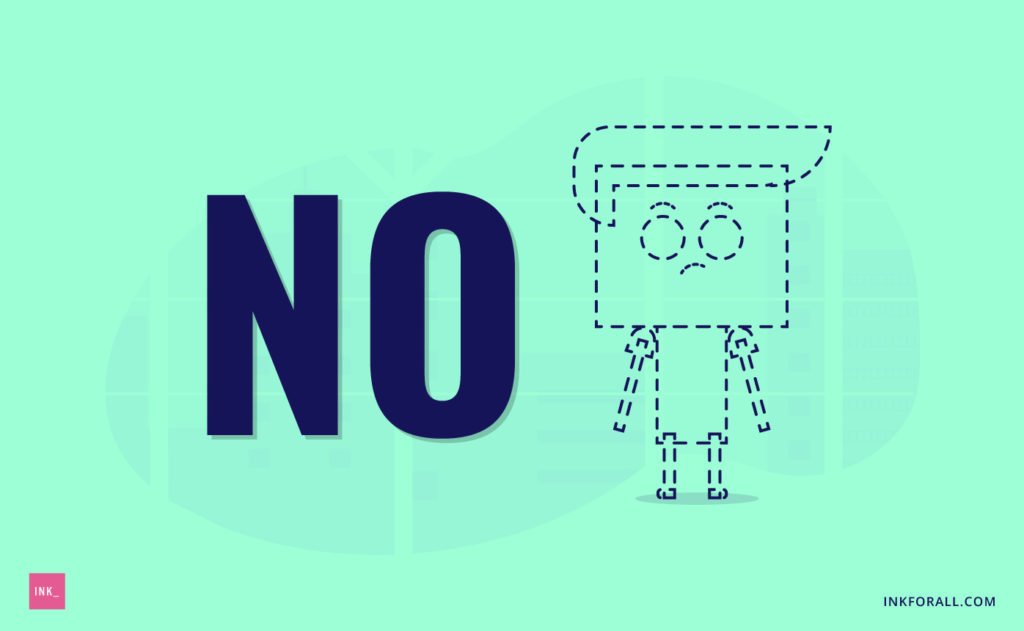

Is Nobody a Negative Word?
The word nobody refers to an absence of people and is considered a negative pronoun. Negative pronouns are used to create negative clauses.
Other Examples of Negative Pronouns
- No
- None
- Nothing
- No one
- Neither
Two Negatives Never Make a Right
You should never use another negative word in the same clause with the words nobody, nothing, or no one.
Noone or No One: A Brief Recap
When it comes to noone and no one, the rules are simple. No one should be written out as two words. Moreover, we recommend that you avoid using a hyphen and opt for the always-correct spelling no one.
Just don’t ever spell it noone. Then again, who would do that? Nobody, right? 😜
Noone or No One? Let’s see if You’re no Longer Confused! Take the Quiz Below
Noone vs. No one Question #1
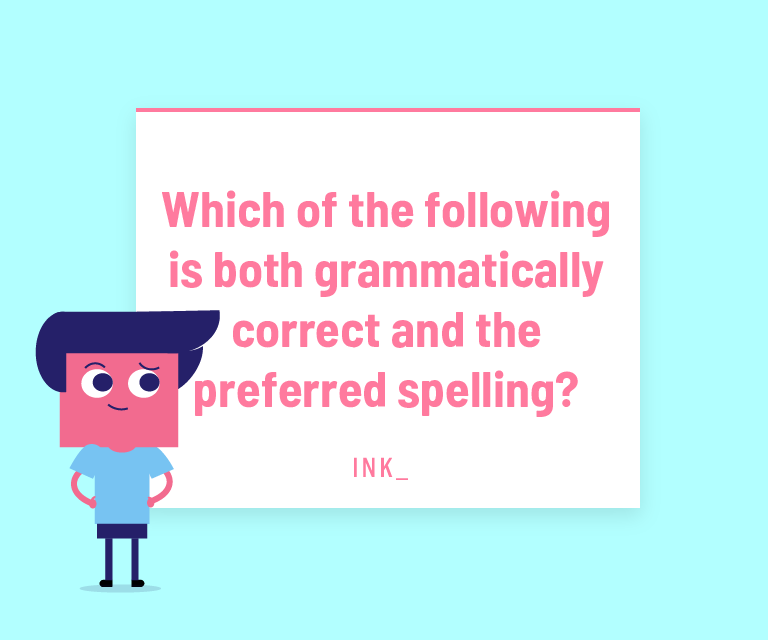

The answer is C. While no-one is technically correct in some contexts, it is rarely used. The preferred spelling is “no one” with two words.
Noone Question #2
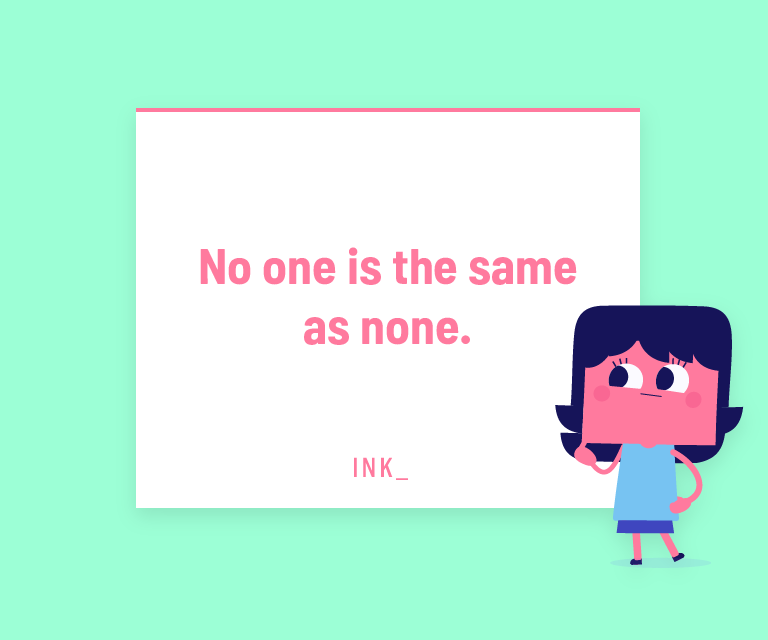

The answer is FALSE. “No one” refers to people only, while “none” can refer to people and inanimate objects.
No one Question #3
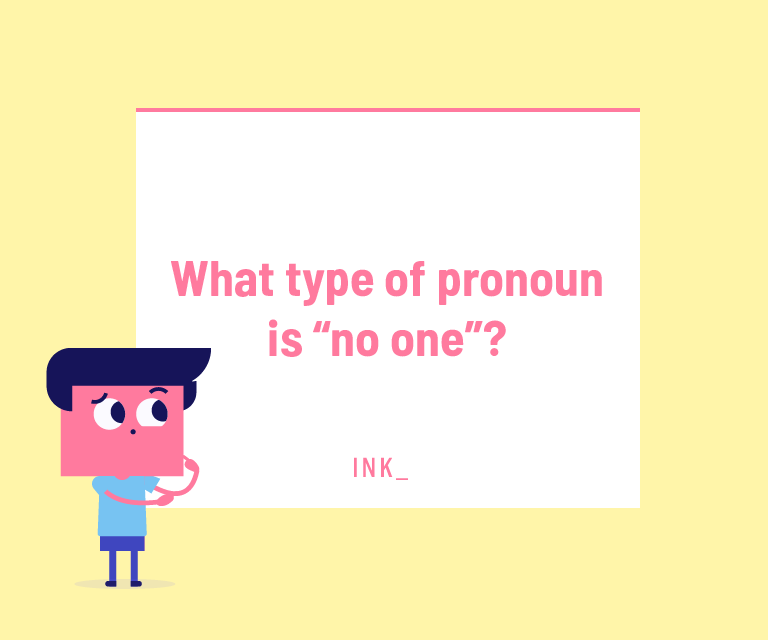

The answer is D. “No one” is an indefinite pronoun that means no person.
Noone or No one Question #4
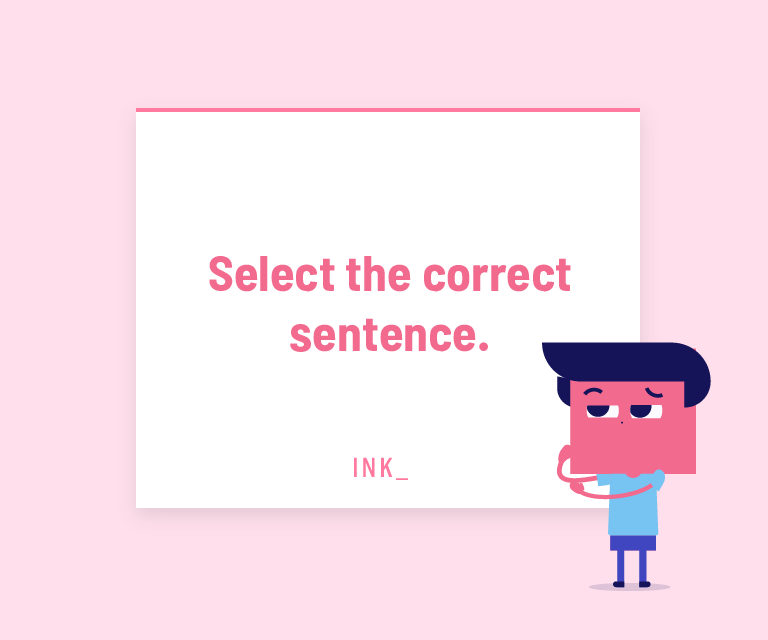

The answer is B. Since the word “no one” is singular, use the singular verb “has.”
No one Question #5
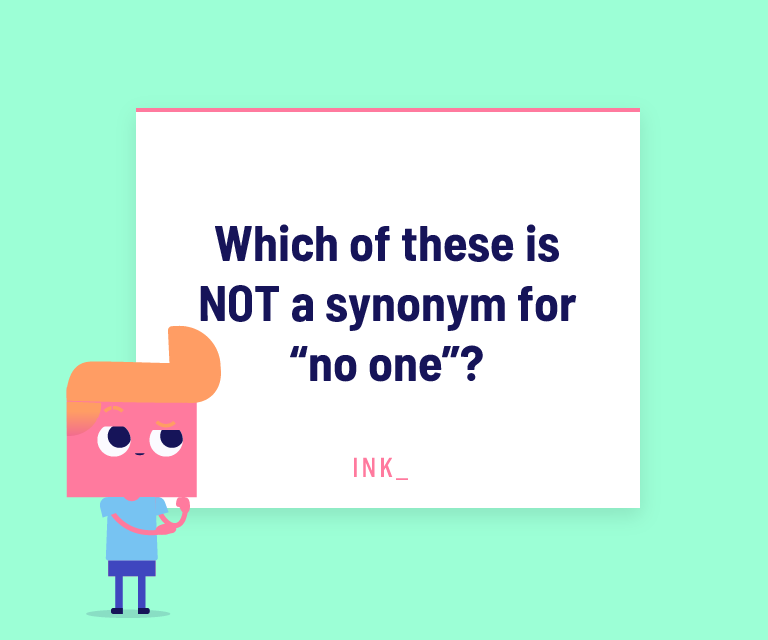

The answer is C. “Noone” is a misspelling of the indefinite pronoun “no one.”
Noone Question #6
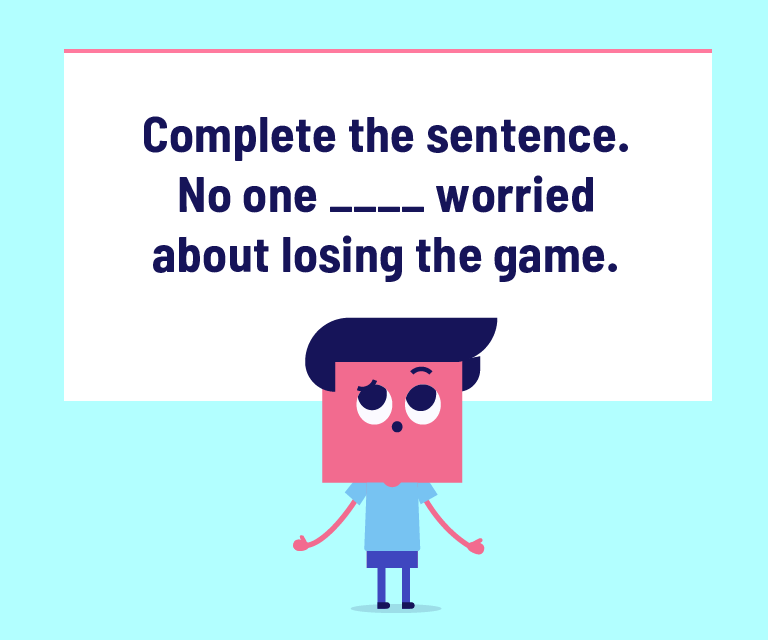

The answer is WAS. Since “no one” is a negative pronoun, you shouldn’t add another negative to the sentence.


